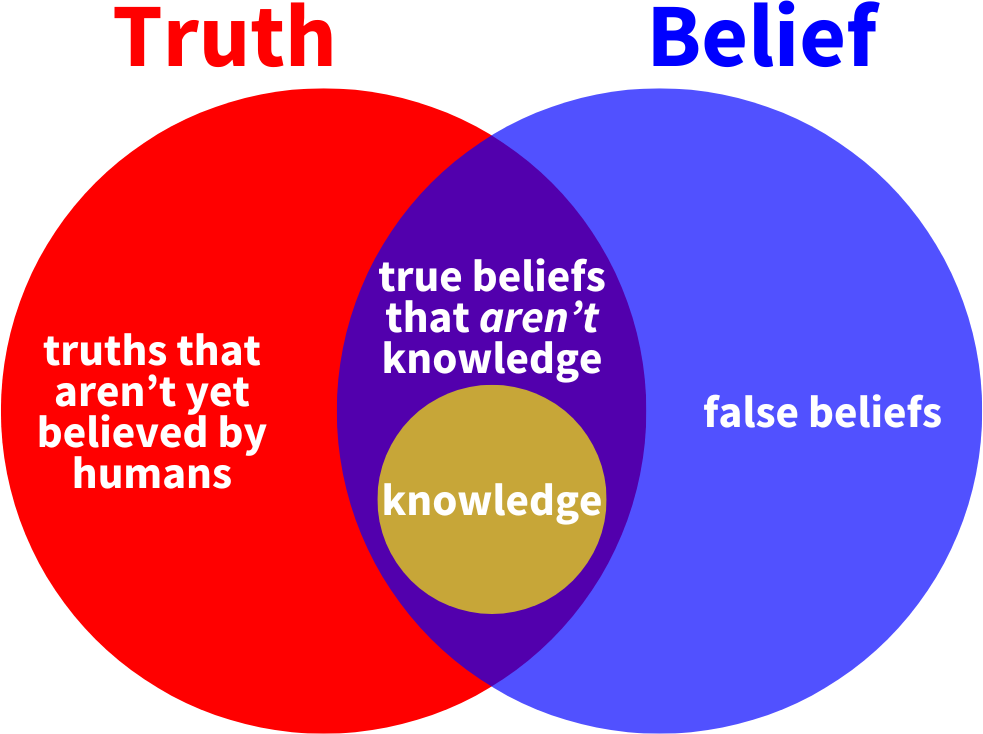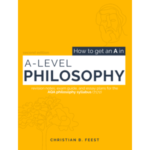Note: I am making a few assumptions here, such as a correspondence theory of truth and that belief is a necessary condition of knowledge. But I think this characterisation generally fits with how these words are used and understood.
Truth
Something can be true even if nobody believes it or knows it.
For example, it was always true – a fact – that the chemical structure of water is H2O, even before anybody knew or believed this fact.
There are many facts about our universe that are yet to be discovered. These facts are still true, even if nobody yet believes or knows them.
Belief
People can believe stuff that’s false.
For example, 1000 years ago, almost everybody believed the Sun revolved around the Earth rather than the other way round. Or, 100 or so years ago, many people believed smoking cigarettes was healthy.
A lot of things people believe and are expected to believe nowadays are probably false too. But even if everybody believes something, that doesn’t make it true. If everybody was brainwashed into believing “2+2=5”, for example, it still wouldn’t make “2+2=5” true.
Knowledge
All knowledge is true belief. You can’t know something that’s false. And you can’t know something if you don’t believe it.
But not all true belief is knowledge. This is because the truth of your belief could just be a lucky guess. If you just guessed and believed “5” when asked “how many moons does Pluto have?” this belief wouldn’t be knowledge because it’s not properly justified. And even if you have a justified true belief, this doesn’t necessarily mean you have knowledge either because of Gettier cases.
@philosophymania The relationship between belief, knowledge, and truth https://philosophyalevel.com/aqa-philosophy-revision-notes/definition-of-knowledge/ #philosophy #philosophytiktok #epistemology #alevelphilosophy ♬ original sound – philosophymania

 The philosophy textbook written with the student in mind!
The philosophy textbook written with the student in mind!